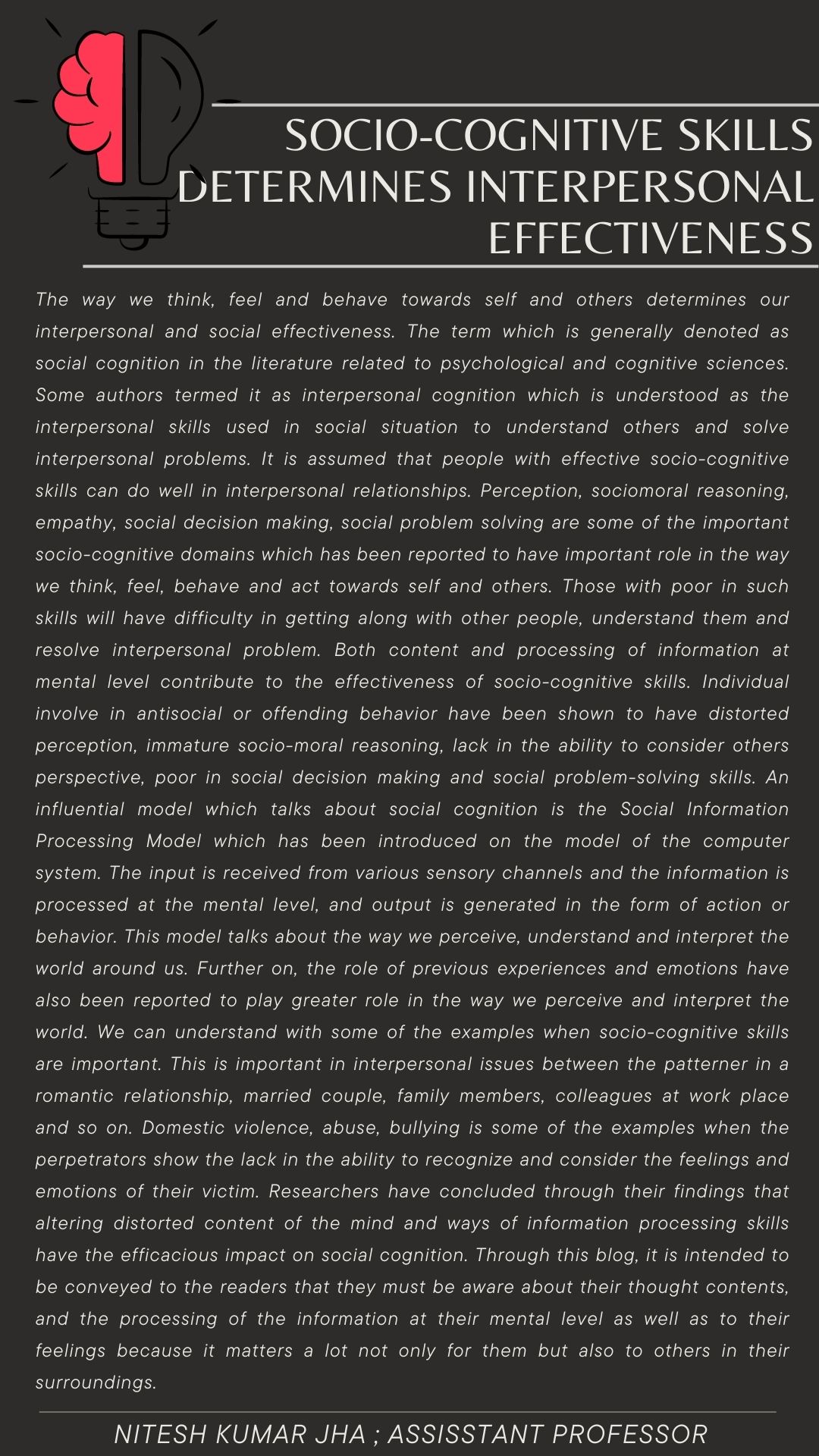The way we think, feel and behave towards self and others determines our interpersonal and social effectiveness. The term which is generally denoted as social cognition in the literature related to psychological and cognitive sciences. Some authors termed it as interpersonal cognition which is understood as the interpersonal skills used in social situation to understand others and solve interpersonal problems. It is assumed that people with effective socio-cognitive skills can do well in interpersonal relationships. Perception, sociomoral reasoning, empathy, social decision making, social problem solving are some of the important socio-cognitive domains which has been reported to have important role in the way we think, feel, behave and act towards self and others. Those with poor in such skills will have difficulty in getting along with other people, understand them and resolve interpersonal problem. Both content and processing of information at mental level contribute to the effectiveness of socio-cognitive skills. Individual involve in antisocial or offending behavior have been shown to have distorted perception, immature socio-moral reasoning, lack in the ability to consider others perspective, poor in social decision making and social problem-solving skills. An influential model which talks about social cognition is the Social Information Processing Model which has been introduced on the model of the computer system. The input is received from various sensory channels and the information is processed at the mental level, and output is generated in the form of action or behavior. This model talks about the way we perceive, understand and interpret the world around us. Further on, the role of previous experiences and emotions have also been reported to play greater role in the way we perceive and interpret the world. We can understand with some of the examples when socio-cognitive skills are important. This is important in interpersonal issues between the patterner in a romantic relationship, married couple, family members, colleagues at work place and so on. Domestic violence, abuse, bullying is some of the examples when the perpetrators show the lack in the ability to recognize and consider the feelings and emotions of their victim. Researchers have concluded through their findings that altering distorted content of the mind and ways of information processing skills have the efficacious impact on social cognition. Through this blog, it is intended to be conveyed to the readers that they must be aware about their thought contents, and the processing of the information at their mental level as well as to their feelings because it matters a lot not only for them but also to others in their surroundings.

Socio-cognitive Skills Determines Interpersonal Effectiveness
- Post author:SGT_Admin
- Post published:June 21, 2023
- Post category:Blog
- Post comments:0 Comments



